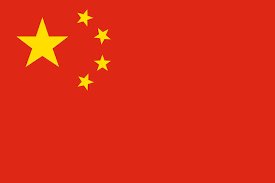The Ministry of Commerce announced on Thursday, January 2, that subsidiaries of Lockheed Martin, General Dynamics, and Raytheon have been added to China’s "Unreliable Entities List" for their participation in the arms deals.
These firms are now barred from import and export activities in China, prohibited from making new investments, and their senior executives are banned from entering the country.
This follows sanctions announced last Friday on seven U.S. military-industrial companies, including Boeing subsidiary Insitu, also in response to U.S. military assistance to Taiwan.
Taiwan remains a contentious issue in U.S.-China relations. Beijing claims the self-ruled island as part of its territory and has vowed to reunify it, by force if necessary. While Washington does not formally recognize Taiwan, it is the island’s largest arms supplier and a key strategic ally.
In December, U.S. President Joe Biden approved $571.3 million in defence support for Taiwan. A Chinese foreign ministry spokesperson described the U.S.
Actions as interference in China’s internal affairs, saying they "undermine China’s sovereignty and territorial integrity."
China has escalated military and political pressure on Taiwan in recent years, staging three rounds of large-scale military drills since Taiwanese President Lai Ching-te assumed office in May.
On the same day as the latest sanctions, China’s commerce ministry added 28 U.S. entities, primarily defence firms, to its Export Control List.
This action bans the export of dual-use items to these entities, including General Dynamics, Lockheed Martin Corporation, and Boeing Defense, Space & Security.
The ministry stated that the move aims to safeguard national security, protect Chinese interests, and uphold international obligations related to non-proliferation.





















